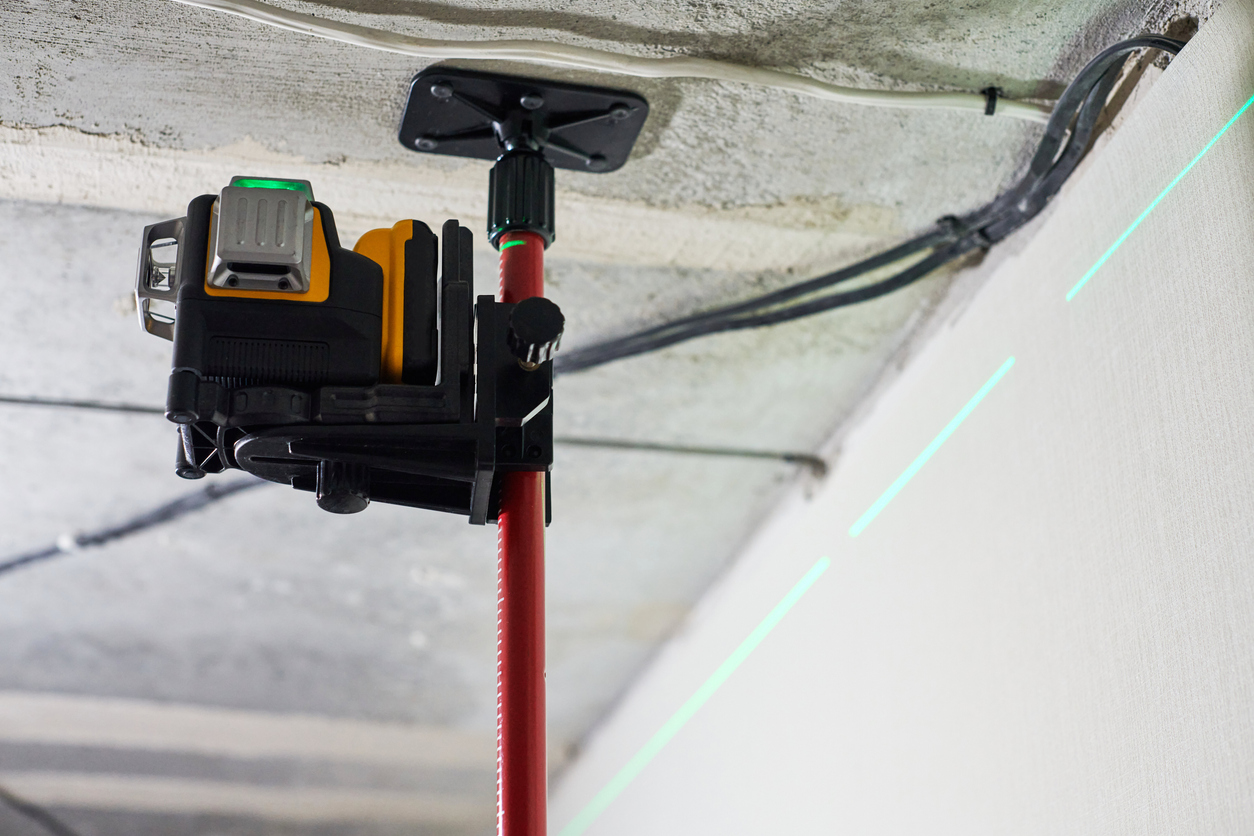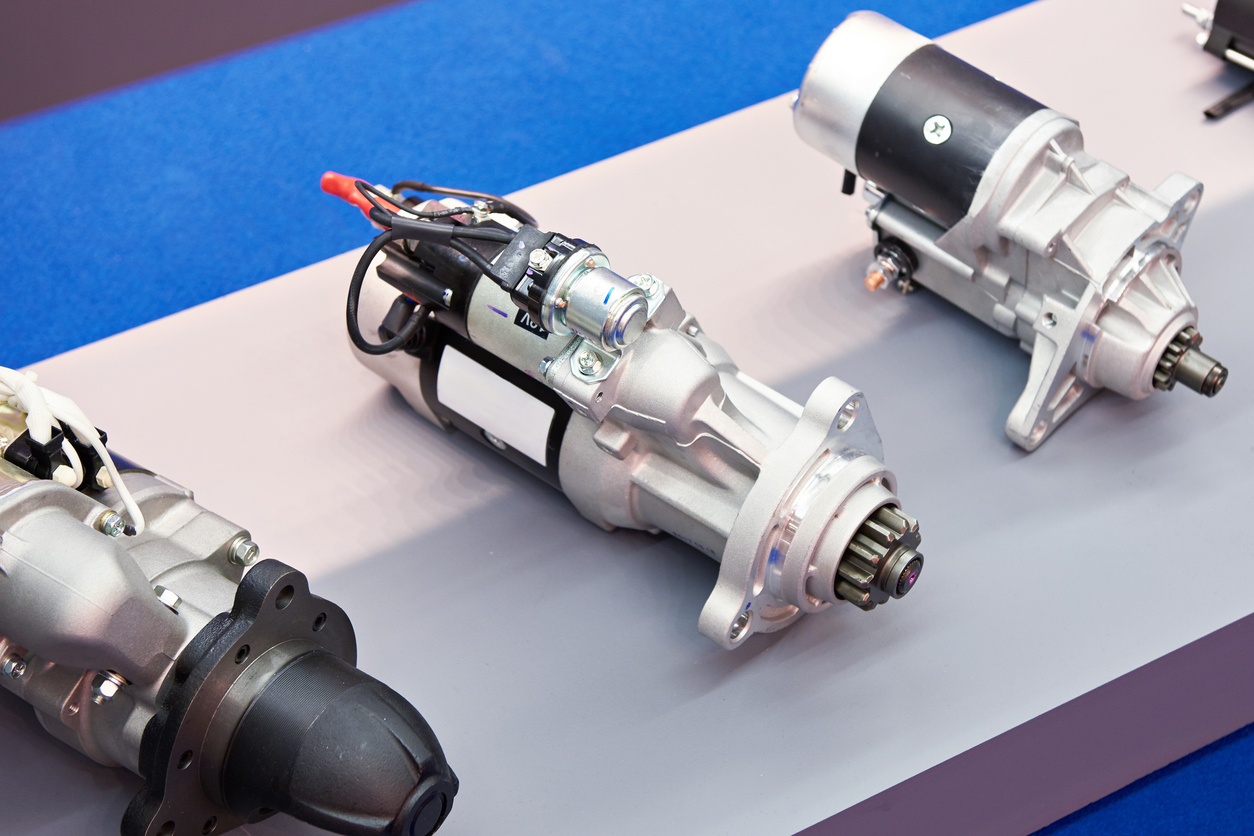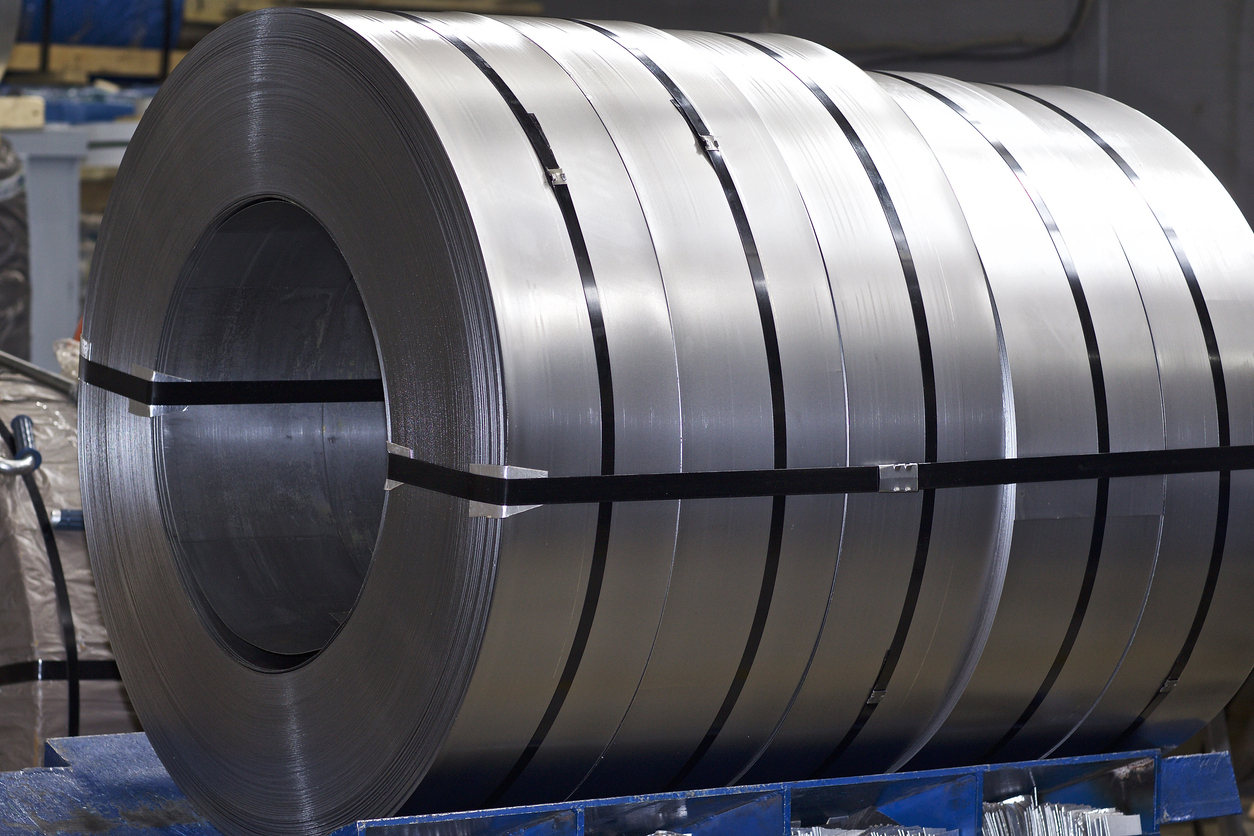Exploring the Benefits of Boroscopic Inspection Services in Nigeria with Wigmore Trading
Exploring the Benefits of Boroscopic Inspection Services in Nigeria with Wigmore Trading
Are you in need of a reliable and efficient way to inspect your equipment or infrastructure in Nigeria? Look no further than boroscopic inspection services offered by Wigmore Trading! In this blog post, we will explore the numerous benefits of utilizing boroscopic inspection services in Nigeria and how Wigmore Trading can help meet your needs. From ensuring safety and efficiency to saving time and money, boroscopic inspections are a valuable tool for any business or organization. Let’s dive in and discover all the ways these services can benefit you!
Introduction to Boroscopic Inspection Services
Introduction to Boroscopic Inspection Services
Boroscopic inspection services have become an essential tool in the maintenance and upkeep of industrial machinery. This advanced technology allows for a thorough visual inspection of internal components without having to disassemble the equipment, saving time and money for businesses. In Nigeria, Wigmore Trading is at the forefront of providing boroscopic inspection services to various industries, including oil and gas, power generation, manufacturing, and more.
What is Boroscopic Inspection?
Boroscopic inspection involves using a specialized instrument called a borescope to visually inspect the internal components of machinery. The borescope consists of a flexible tube with an eyepiece on one end and a lens or camera on the other end. It can be inserted into small openings or through existing access points in machinery to capture images or videos of hard-to-reach areas.
Benefits of Boroscopic Inspection Services
1. Accurate and Detailed Inspections: With boroscopy, technicians can get a clear view of internal parts that may not be visible during regular inspections. This allows them to identify any potential issues accurately and provide detailed reports with high-quality images or videos.
2. Time-Saving: Traditional methods of equipment inspection often require disassembly, which can be time-consuming and disruptive to operations. With boroscopy, inspections can be done quickly without disrupting production processes.
3. Cost-Effective: By avoiding costly disassembling procedures, companies can save money on labor costs associated with traditional inspections. Moreover, early detection of potential issues through boroscopy can prevent expensive repairs down the line.
4.Risk Mitigation: Regular use of boroscopy as part of maintenance strategies helps mitigate risks associated with equipment failure such as downtime or accidents caused by faulty machinery.
5.Improved Maintenance Planning: The detailed reports provided by boroscopy enable technicians to plan future maintenance schedules efficiently. By identifying potential problems early on through regular inspections, companies can schedule repairs and replacements at a convenient time, reducing downtime.
Conclusion
Boroscopic inspection services are a valuable asset for businesses in Nigeria. With Wigmore Trading’s expertise and state-of-the-art equipment, companies can benefit from accurate and detailed inspections that save time, money, and mitigate risks associated with equipment failure. Regular use of boroscopy as part of maintenance strategies can greatly improve the overall performance and longevity of industrial machinery.
What is Boroscopic Inspection?
Boroscopic inspection is a non-destructive testing method that utilizes a specialized instrument called a boroscope to internally inspect the surfaces of machinery, pipes, and other confined spaces. It is an essential tool for industries such as aviation, oil and gas, manufacturing, and engineering where equipment reliability and safety are critical.
The boroscope consists of a slender tube with an eyepiece at one end and a lens or camera at the other. The instrument can be inserted into tight spaces through small openings to provide visual access to areas that are otherwise inaccessible. This allows technicians to examine the internal conditions of equipment without having to dismantle or disassemble them, saving time and costs.
One of the primary uses of boroscopic inspection is for maintenance purposes. By using the boroscope, engineers can identify any potential issues or defects inside machinery before they escalate into major problems. This proactive approach allows for timely repairs or replacements before breakdowns occur, preventing costly downtime and production delays.
In addition to maintenance, boroscopic inspections also play a crucial role in quality control during manufacturing processes. The ability to visually assess internal components ensures product integrity and minimizes defects before they leave the production line.
Another significant benefit of boroscopic inspection is its capability to detect corrosion in pipes and vessels used in the oil and gas industry. With regular inspections using this method, operators can monitor corrosion levels over time and take necessary measures to prevent catastrophic failures.
Moreover, boroscopic inspection is an essential tool for assessing structural damage in buildings or bridges. It can reach areas that may be difficult or dangerous for human inspectors to access. This makes it ideal for conducting thorough examinations after natural disasters like earthquakes or hurricanes.
In Nigeria’s context specifically, where infrastructure development is rapidly growing across various industries such as construction and energy production, boroscopic inspection services provided by companies like Wigmore Trading are crucial for ensuring safety standards are met.
Boroscopic inspection offers numerous benefits that make it an invaluable tool for industries in Nigeria. It provides a cost-effective and non-destructive method for detecting potential problems, ensuring quality control, and maintaining the integrity of critical equipment. With the help of boroscopic inspection services from reputable companies like Wigmore Trading, Nigerian businesses can enhance their operations’ efficiency and safety.
Importance and Benefits of Boroscopic Inspection in Nigeria
Boroscopic inspection is a crucial aspect of industrial maintenance and quality control in Nigeria. With the rapid growth of various industries such as oil and gas, power generation, manufacturing, and aviation, the need for efficient and reliable inspection methods has become more important than ever before. This is where boroscopic inspection comes into play.
Also known as remote visual inspection (RVI), boroscopic inspection involves the use of specialized equipment such as boroscopes to remotely examine the internal components of machinery or structures without causing any damage. The equipment consists of a flexible tube with a lens at one end and an eyepiece or camera at the other end, allowing inspectors to view images or videos of hard-to-reach areas.
The importance of boroscopic inspection services in Nigeria cannot be overstated. One major benefit is its ability to detect potential issues before they turn into major problems that could lead to costly repairs or downtime. By conducting regular inspections using boroscopes, companies can identify defects or wear and tear in their equipment early on and take corrective actions promptly. This not only saves time but also reduces overall maintenance costs.
Furthermore, with safety being a top priority in industries like oil and gas and power generation, using boroscopic inspection methods minimizes risks associated with manual inspections. Inspectors can access confined spaces, high-temperature areas, or hazardous environments without putting themselves in harm’s way.
Another significant advantage of boroscopic inspection is its non-destructive nature. Traditional inspection methods often require dismantling machinery or structures for visual examination, which can be time-consuming and costly. With RVI techniques like borescope inspections, there is no need for any disassembly as the equipment can reach even the most inaccessible areas within machines without causing any disruption to operations.
In addition to these benefits, utilizing boroscopic inspections also leads to increased efficiency in operations. By identifying potential issues early on through regular inspections, companies can schedule maintenance activities at convenient times, avoiding unplanned downtime that can affect productivity and profitability.
The importance and benefits of boroscopic inspection in Nigeria cannot be overlooked. It is a cost-effective, non-destructive, and efficient method of maintaining equipment and ensuring safety in various industries. As technology continues to advance, we can expect even more advanced boroscopic inspection techniques to emerge, further enhancing the efficiency and effectiveness of this critical aspect of industrial maintenance.
Types of Boroscopic Inspections Offered by Wigmore Trading
At Wigmore Trading, we offer a wide range of boroscopic inspection services to cater to the diverse needs of our clients in Nigeria. Our experienced technicians are equipped with state-of-the-art equipment and have extensive knowledge in the field of boroscopy, ensuring high-quality and accurate inspections.
1. Visual Boroscopy:
This is the most commonly used type of boroscopic inspection, where a flexible fiberoptic tube with a tiny camera at its tip is inserted into the component being inspected. The images captured by the camera are then transmitted to a monitor for visual analysis by our skilled technicians. This non-destructive technique allows us to detect any defects or abnormalities within the component.
2. Ultrasonic Boroscopy:
In this type of boroscopic inspection, ultrasonic waves are used to assess internal structures and components that cannot be seen with visual boroscopy alone. The ultrasonic waves penetrate through materials, allowing us to detect flaws such as cracks, corrosion, and delamination.
3. Eddy Current Boroscopy:
Eddy current boroscopy utilizes electromagnetic induction to detect surface-breaking cracks or near-surface defects in metallic components. It is particularly useful in inspecting thin-walled pipes or tubes for corrosion and cracking.
4. Fluorescent Penetrant Boroscopy:
This method involves applying fluorescent dye onto the surface of a component and then using UV light to spot any discontinuities or cracks on its surface. This technique is highly sensitive and can identify even minor defects that may not be visible with other types of inspections.
5. Infrared Thermography Boroscopy:
Infrared thermography uses thermal imaging cameras to measure heat patterns on a component’s surface caused by internal defects such as voids or delamination. This technique is especially useful for inspecting composite materials and detecting hidden flaws that may affect their structural integrity.
6. Remote Visual Inspection (RVI):
RVI involves using remote-controlled cameras to inspect components in confined spaces or areas that are difficult to access. It allows us to capture high-definition images and videos of the component’s internal structures without the need for physical entry, reducing the risk of damage or contamination.
At Wigmore Trading, we offer a comprehensive range of boroscopic inspection services tailored to meet the specific needs of our clients in Nigeria. Our team is committed to providing accurate and reliable inspections to ensure the safety and integrity of your equipment and components. Contact us today for all your boroscopic inspection needs.
– Tank Internal Wall Video Inspection
Tank Internal Wall Video Inspection is a crucial service offered by Wigmore Trading as part of their boroscopic inspection services in Nigeria. This service involves using specialized cameras to conduct a thorough visual assessment of the internal walls of tanks, providing accurate and detailed information about its condition.
The use of video inspection technology has revolutionized the way tank inspections are conducted. It offers several advantages over traditional methods such as physical entry into the tank or using manual instruments to assess the internal condition. With tank internal wall video inspection, there is no need for confined space entry, reducing safety risks and saving time and costs associated with setting up safety measures. Moreover, it eliminates the need for human presence in hazardous environments, making it a safer option.
The highly advanced cameras used in this process provide high definition images that allow inspectors to get an up-close view of every corner and surface inside the tank. This level of visibility enables them to identify any potential defects or anomalies that would have been missed by other methods. Furthermore, these videos can be recorded and saved for future reference, allowing clients to track changes over time and take necessary preventive measures.
Another significant benefit of tank internal wall video inspection is its non-destructive nature. The use of borescopes allows for remote access without causing any damage to the tank’s interior walls or affecting its structural integrity. This means that tanks do not have to be taken out of service during inspections, minimizing downtime and loss of production.
Moreover, this method provides real-time results, allowing immediate action to be taken if any issues are found within the tank’s walls. In contrast, traditional methods often require post-inspection analysis before identifying problems which leads to delays in addressing them.
Wigmore Trading’s team consists of trained professionals who are experts in conducting efficient tank internal wall video inspections utilizing state-of-the-art equipment. They follow strict protocols and adhere to industry standards while performing these services, ensuring accuracy and reliability in their findings.
Tank internal wall video inspection is a vital part of boroscopic inspection services offered by Wigmore Trading in Nigeria. It provides numerous benefits such as increased safety, accuracy, efficiency, and cost-effectiveness. With this service, clients can have peace of mind knowing that their tanks are thoroughly inspected with minimal disruption to their operations.
– Tube & Pipe Internal Wall Video Inspection
Tube and pipe internal wall video inspection is a non-destructive testing method that uses boroscopes to examine the inner walls of pipes and tubes. In this process, a flexible fiber optic camera is inserted into the tube or pipe through an opening, providing real-time visual footage of the internal surface.
This type of inspection is essential in industries such as oil and gas, manufacturing, and construction, where pipes and tubes are used for fluid transportation or structural support. It allows for early detection of defects or anomalies that could potentially compromise the integrity of these crucial components.
One of the major benefits of tube and pipe internal wall video inspection is its ability to provide high-resolution images without causing any damage to the examined materials. This ensures that there is no disruption to ongoing operations or costly shutdowns for repair work.
Additionally, by using advanced boroscopic equipment with powerful lighting sources, even hard-to-reach areas within pipes and tubes can be thoroughly inspected. This eliminates blind spots that could be missed with other inspection methods, ensuring comprehensive coverage.
Furthermore, this type of inspection offers a cost-effective solution compared to traditional methods such as manual visual inspections or X-rays. With boroscopic services, only one trained technician is required to operate the equipment, reducing labor costs significantly.
Moreover, tube and pipe internal wall video inspection provides accurate data on the condition of pipelines and tubing systems. The recorded videos can be saved for future reference or shared with clients to aid in decision-making processes regarding maintenance or repairs.
Another significant advantage of utilizing boroscopic services for tube and pipe inspections is its non-intrusive nature. Unlike other techniques that may require cutting into walls or dismantling structures for access, this method can simply insert through existing openings in pipes or tubes without causing any damage.
Wigmore Trading’s boroscopic services offer many advantages when it comes to inspecting tube and pipe internal walls in Nigeria. From high-resolution imaging capabilities to cost-effectiveness and non-destructive nature, this method is a valuable tool for ensuring the safety and reliability of critical infrastructure. By investing in this advanced inspection technology, industries can minimize risks and save time and money in the long run.
Process and Technology Used for Boroscopic Inspections
Boroscopic inspections are an essential part of maintenance and troubleshooting processes in various industries, including oil and gas, aviation, automotive, and manufacturing. These inspections involve using a specialized tool called a borescope to visually examine the internal components of machinery or equipment without the need for disassembly. In this section, we will discuss the process and technology used for boroscopic inspections in more detail.
Process:
The first step in conducting a boroscopic inspection is to select the appropriate type of borescope for the specific application. There are three main types of borescopes: rigid, flexible, and semi-rigid. Rigid borescopes have a straight tube with lenses on one end and eyepieces on the other end. They are best suited for inspecting straight pipes or ducts. Flexible borescopes have a bendable insertion tube that allows for better maneuverability around curves and bends in machinery or equipment. Semi-rigid borescopes combine features from both rigid and flexible scopes, making them useful for various applications.
Once the suitable borescope has been selected, it is inserted into the opening of the machine or equipment being inspected. The images captured by the camera at one end of the scope are transmitted through fiber optic cables to an eyepiece or a video monitor where they can be viewed by an operator. The operator then navigates through different angles and positions to get a comprehensive view of all internal components.
Technology:
Borescopes come equipped with advanced technologies that enable efficient inspections while providing high-quality images and videos for analysis. Some common features include adjustable lighting systems to illuminate dark areas inside machinery or equipment; image capture capabilities that allow operators to save images for future reference; video recording capabilities that allow operators to record their inspection journey; motorized articulating probes that allow for precise control over movement within tight spaces; and digital zoom functionality that enables close-up views of specific components.
In recent years, there have been significant advancements in borescope technology, such as the incorporation of wireless connectivity and real-time image transmission. This allows for remote inspections where the operator can control the scope wirelessly from a distance while simultaneously sharing live footage with colleagues or supervisors.
Conclusion:
The process and technology used for boroscopic inspections have significantly improved over time, making them an essential tool in various industries’ maintenance and troubleshooting processes. The flexibility, efficiency, and accuracy offered by modern borescopes make them a valuable asset for businesses looking to minimize downtime and maintain their equipment’s optimal performance. At Wigmore Trading, we offer top-of-the-line borescope inspection services using the latest equipment and techniques to ensure our clients’ satisfaction.
Applications of Boroscopic Inspections in Various Industries
Boroscopic inspection services have become an essential tool in various industries, providing a non-destructive and cost-effective method for inspecting the internal components of machinery and equipment. With its advanced technology, boroscopic inspections offer detailed visual information about the condition of parts, which can help prevent costly breakdowns and downtime.
The following are some of the key applications of boroscopic inspections in different industries:
1. Oil and Gas Industry:
In the oil and gas industry, boroscopic inspections are used to inspect critical components such as pipelines, valves, pumps, compressors, and turbines. These components operate under high pressure and extreme temperatures that can cause wear and tear over time. Boroscopic inspections allow technicians to identify any defects or corrosion in these parts without having to shut down operations.
2. Aerospace Industry:
In the aerospace industry, where safety is paramount, boroscopic inspections play a crucial role in ensuring the airworthiness of aircraft engines. It enables engineers to assess the condition of turbine blades, combustion chambers, fuel nozzles, bearings, and other internal components without disassembling them fully.
3. Power Generation Industry:
Boroscopic inspections are widely used by power generation companies to maintain their equipment’s reliability and efficiency. Turbines used in power plants operate at high speeds with extreme temperatures that require regular monitoring for any signs of wear or damage. Boroscope inspection provides detailed images that enable engineers to detect faults at an early stage before they escalate into major issues.
4. Automotive Industry:
In the automotive industry, boroscopes are utilized for quality control during manufacturing processes such as engine assembly lines. They help identify defects like cracks or debris left inside engine cylinders before they leave the production line.
5. Marine Industry:
Marine vessels operate under harsh conditions like saltwater exposure which can lead to corrosion on critical parts like propellers or shafts. Boroscope inspection is useful in detecting such damages without requiring dismantling of the equipment, saving time and cost for ship owners.
Boroscopic inspection services have revolutionized maintenance practices in various industries. It provides a non-intrusive method for inspecting internal components, reducing downtime and improving overall efficiency. With its advanced technology, boroscopic inspections have become an indispensable tool in ensuring the safety and reliability of machinery and equipment across different sectors. Investing in these services can lead to significant cost savings for businesses while also ensuring the smooth operations of their assets.
– Oil and Gas Industry
The oil and gas industry is a vital part of the Nigerian economy, accounting for over 90% of the country’s export revenue. It plays a significant role in driving economic growth, providing employment opportunities, and meeting the energy needs of the nation. However, with such importance comes great responsibility to ensure safety and efficiency in operations.
Oil and gas facilities are complex and often located in remote areas, making regular maintenance challenging. This is where boroscopic inspection services come into play. Boroscopy is a non-destructive testing method that involves using a small camera attached to a flexible tube to inspect hard-to-reach areas inside equipment or machinery.
In the oil and gas industry, boroscopic inspections are crucial for maintaining the integrity of critical components such as pipelines, valves, pumps, turbines, and compressors. These components operate under extreme conditions of pressure and temperature, making them vulnerable to wear and tear or even failure if not adequately maintained.
Wigmore Trading offers state-of-the-art boroscopic inspection services that utilize advanced technology to provide accurate results quickly. The use of high-resolution cameras enables our team of experts to detect even minor defects or anomalies within these components without causing any damage.
One significant benefit of utilizing boroscopic inspection services in Nigeria is its cost-effectiveness. Traditional methods of inspecting these components involved shutting down operations for an extended period while disassembling equipment for visual inspections. This process not only causes production delays but also incurs significant costs in terms of labor and downtime expenses.
On the other hand, boroscopic inspections can be carried out while equipment is still running with minimal disruption to operations. This saves both time and money while ensuring timely detection and prevention of potential failures that could result in costly repairs or replacements.
Moreover, boroscopy allows for early detection of corrosion or other forms of damage before they escalate into more severe issues that could impact production or pose safety risks. This proactive approach helps companies avoid costly shutdowns and maintain safe working conditions for their employees.
The oil and gas industry in Nigeria stands to benefit greatly from the implementation of boroscopic inspection services. Not only does it ensure safety, efficiency, and cost-effectiveness in operations, but it also helps maintain compliance with regulatory standards. With Wigmore Trading’s expertise and advanced technology, companies can ensure the reliable operation of their equipment while minimizing risks and maximizing profits.
– Manufacturing Industry
The manufacturing industry is a vital sector of the economy, responsible for producing goods and products that are essential for everyday life. In Nigeria, this industry plays a significant role in driving economic growth and creating job opportunities for its citizens. As such, it is crucial to ensure that the manufacturing processes are efficient and produce high-quality products.
One way to maintain efficiency and quality control in the manufacturing industry is through boroscopic inspection services. These services involve using specialized tools such as boroscopes to examine the inside of machines, equipment, and structures without having to dismantle them. This allows for a comprehensive assessment of their condition and identifies any potential issues or defects.
Wigmore Trading recognizes the importance of boroscopic inspection services in the Nigerian manufacturing industry and offers top-quality solutions to businesses looking to optimize their operations. One of the main benefits of these services is preventive maintenance, which helps avoid costly repairs or downtime by identifying any potential problems before they escalate into major issues.
Moreover, boroscopic inspections provide insights into the operational conditions of machinery within the production process. By analyzing images captured by a boroscope, experts can determine if there are any signs of wear and tear or corrosion on critical components. This information allows manufacturers to take proactive steps towards addressing these issues before they cause equipment failure or production delays.
In addition to improving maintenance practices, boroscopic inspection services also enhance product quality control. With advanced technology like high-resolution cameras attached to boroscopes, inspectors can thoroughly examine internal surfaces for defects or irregularities that may affect product performance. This level of scrutiny ensures that only high-quality products leave the production line.
Furthermore, utilizing boroscopic inspections can help reduce safety risks in manufacturing facilities. By detecting potential hazards such as leaks or cracks within equipment early on, preventative measures can be taken to ensure employee safety and prevent accidents from occurring.
It’s worth noting that Wigmore Trading’s team consists of highly skilled technicians who have extensive experience working with various industries, including manufacturing. They are well-equipped to handle any boroscopic inspection needs, providing accurate and timely results to their clients.
The manufacturing industry in Nigeria can greatly benefit from utilizing boroscopic inspection services. These services help maintain efficiency, improve product quality, and ensure safety in the workplace. As a leading provider of these services in Nigeria, Wigmore Trading is committed to helping businesses thrive by offering top-of-the-line solutions tailored to their specific needs.
– Power Plants
Power plants play a crucial role in the development and progress of any nation. These facilities are responsible for generating electricity, which is an essential commodity for industries, businesses, and households. In Nigeria, the demand for electricity is constantly increasing due to rapid urbanization and population growth. As a result, the country has invested significantly in constructing new power plants to meet this growing demand.
However, with the high cost of constructing these power plants, it is crucial to ensure that they operate efficiently and reliably. Any unexpected shutdown or failure can have severe consequences on the economy and people’s lives. This is where boroscopic inspection services come into play.
Boroscopic inspection involves using specialized instruments called boroscopes to inspect the internal components of a machine or equipment without disassembling them fully. In power plants, boroscopic inspections are used to examine critical components such as turbines, compressors, valves, and pipes. This method enables engineers and technicians to identify potential issues before they escalate into major problems that could lead to costly downtime.
One of the main benefits of using boroscopic inspection services in power plants is its ability to detect early signs of wear and tear or damage in high-temperature areas or hard-to-reach places. The intense heat generated by turbines can cause metal components to expand and contract rapidly, leading to cracks or other forms of damage over time. With regular boroscopic inspections, any developing issues can be identified early on before they become more significant problems that could result in expensive repairs or replacements.
Moreover, boroscopes allow technicians to capture images and videos from inside equipment during inspections. These visual records provide valuable insight into the condition of critical components and aid in making informed decisions regarding maintenance schedules or necessary repairs.
In addition to detecting potential issues early on, boroscopic inspections also help improve overall plant performance. By identifying areas that may be causing inefficiencies or impeding optimal functioning of equipment within the plant through regular inspections, necessary improvements can be made to enhance the plant’s overall productivity.
Boroscopic inspection services are crucial for maintaining the reliability and efficiency of power plants in Nigeria. By detecting problems early on and providing valuable insights into plant performance, they help prevent costly downtime and ensure that these vital facilities continue to meet the country’s growing energy needs.
–
Boroscopic inspection services have become an essential tool for various industries in Nigeria, including the oil and gas, automotive, and construction sectors. These services involve using specialized equipment to perform visual inspections of hard-to-reach areas, such as inside pipes, engines, or other confined spaces. This technique has proven to be highly beneficial in identifying potential issues that may not be visible through traditional methods.
One of the main benefits of boroscopic inspection services is its ability to detect defects and damages at an early stage. By using high-resolution cameras attached to flexible borescopes, inspectors can capture clear images of internal components and structures without causing any damage. This allows them to identify potential problems such as corrosion, cracks, leaks, or blockages before they escalate into costly repairs or downtime.
Furthermore, boroscopic inspection services offer a non-destructive testing method, which means that there is no need for disassembling equipment or shutting down operations. This results in significant time and cost savings for businesses in Nigeria. With regular boroscopic inspections, companies can ensure that their equipment is operating at peak performance while minimizing the risk of unexpected breakdowns.
Apart from detecting existing issues, boroscopic inspections also play a crucial role in preventive maintenance programs. By thoroughly examining critical components and structures on a regular basis, inspectors can identify wear and tear patterns or signs of impending failures. This information enables businesses to plan necessary repairs or replacements beforehand rather than dealing with sudden breakdowns that could result in production delays and revenue loss.
Moreover, boroscopic inspection services provide a comprehensive report containing detailed images and videos documenting the condition of inspected components. These reports serve as valuable documentation for regulatory compliance audits and insurance purposes. They also provide vital insights into the overall health of equipment over time and help businesses make informed decisions about future investments.
The benefits of utilizing boroscopic inspection services are abundant for industries in Nigeria. From early detection of defects to preventing costly downtime, these services offer a cost-effective and efficient solution for maintaining equipment and ensuring safe operations. With Wigmore Trading’s experienced team and state-of-the-art equipment, businesses can rest assured that their assets are in good hands.








Comments are closed.